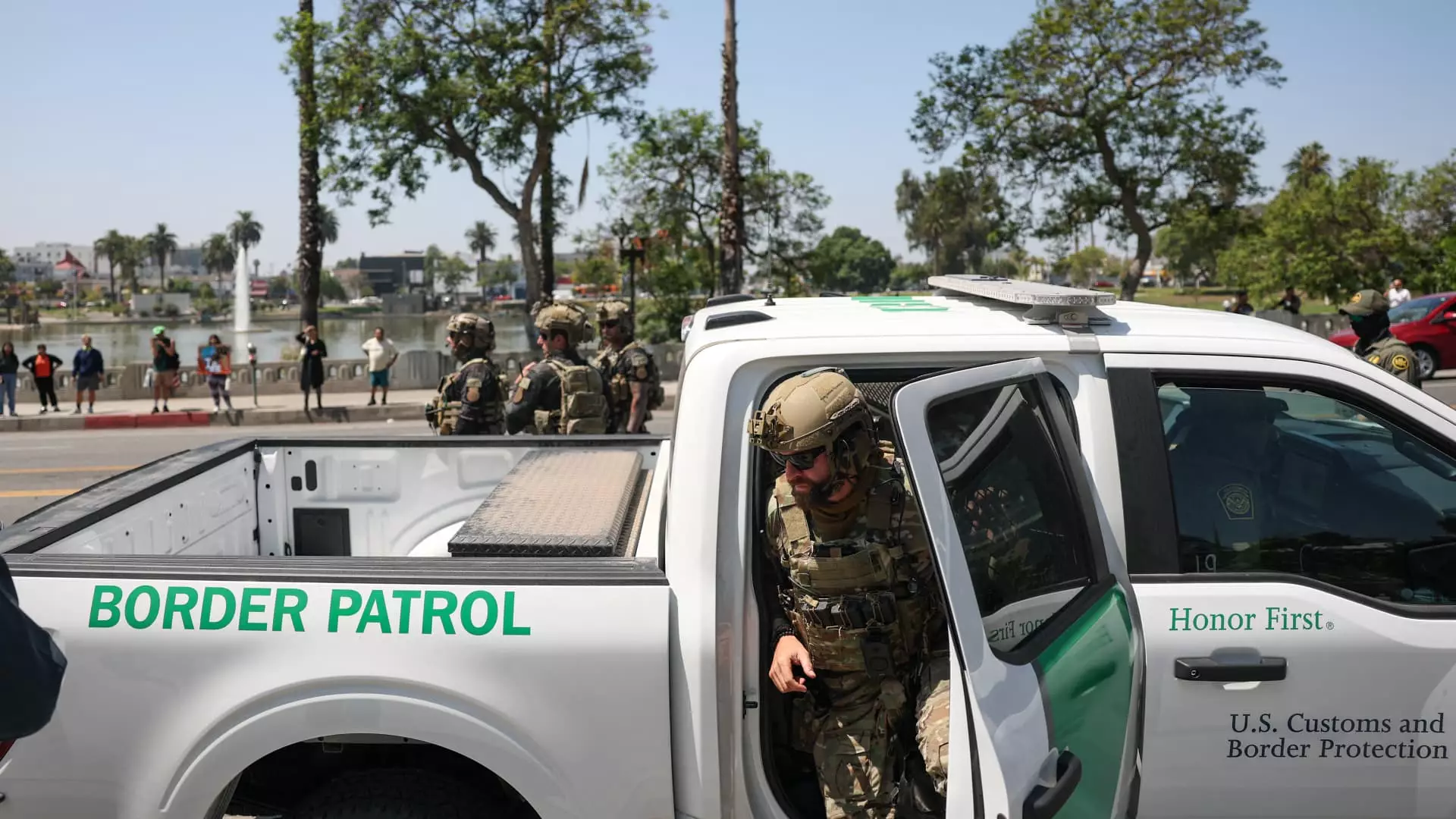In a striking display of judicial integrity, a federal appeals court recently upheld a restraining order that halts the Trump administration’s aggressive immigration tactics in Southern California. This decision marks a pivotal stand against measures that risk undermining constitutional protections under the guise of law enforcement. The court’s willingness to scrutinize and challenge the overreach demonstrates an essential commitment to safeguarding civil liberties amid a political climate eager to prioritize enforcement over fairness.
The appeals court’s rebuke of the federal government underscores a fundamental concern: that seemingly authorized actions might, in fact, be rooted in racial bias and unconstitutional profiling. By openly questioning the government’s rhetoric and tactics, the judiciary reaffirmed its role as a check against executive overreach. This isn’t merely a legal victory; it’s a crucial moral stand. When enforcement agencies deploy policies that disproportionately target communities of color, they threaten to erode the very fabric of civil rights and equal protection that the American legal system is built to uphold.
The court pointedly challenged the government’s justification, emphasizing that evidence of racial bias and profiling cannot be brushed aside. Questions raised during the hearing illuminated the broad and vague parameters the government sought to use — factors like ethnicity, language, occupation, or geographic location — which, when unchecked, become tools for discriminatory detention. The court’s skepticism signals an acknowledgment that allowing such broad criteria to guide enforcement risks damaging core constitutional principles and fostering a climate of fear among vulnerable populations.
The Deep Wounds in Immigration Enforcement Strategies
What is at stake goes beyond legal technicalities; it touches on the moral conscience of a nation that claims to stand for justice and equality. In Los Angeles, immigrant communities have been living through a nightmare. Federal agents conducting indiscriminate stops at workplaces, bus stops, and neighborhoods fuel distrust and fracture communities. This strategy, rooted in fearmongering and racial profiling, undermines the very notion of justice, which demands evidence-based and equitable law enforcement practices.
The human stories behind these policies are heartbreaking. Take the case of Brian Gavidia, a U.S. citizen forcibly detained simply for working in a Latino neighborhood. His story exemplifies how these raids, often targeting well-integrated community members, destroy lives and sow chaos. It reflects thoroughly misplaced priorities: instead of protecting national borders through fair, merit-based systems, enforcement becomes a tool for racial intimidation and cultural suppression.
Furthermore, the government’s aggressive tactics foster an environment of constant vulnerability, especially among undocumented immigrants who have lived peacefully in the U.S. for decades. These strategies don’t just threaten individual rights; they corrode the social trust necessary for a cohesive society. When people fear even simple community activities—working, attending school, or going to a park—they become disenfranchised and prone to marginalization and despair.
The Political and Moral Implications of Ignoring Fundamental Rights
From a political perspective, the current approach reflects an unsettling prioritization of enforcement over fairness. It reveals a fixation on rapid, visible results—whether it be mass deportations or the image of “tough on crime” policies—without regard for due process, justice, or the rights of the individuals affected. Such policies prioritize political posturing at the expense of American ideals of fairness and equality.
This case also exposes the peril of complacency. By resisting accountability, the government risks normalizing racial profiling and illegal detentions. The judiciary’s intervention acts as a safeguard, but only if it’s supported by a broader societal condemnation of discriminatory practices. The broader liberal center must recognize that defending civil liberties isn’t about being lenient on enforcement; it’s about insisting that enforcement respects constitutional bounds and human dignity.
City leaders like Los Angeles Mayor Karen Bass have rightly positioned themselves as defenders of community rights. Their stance underscores the importance of civic responsibility in resisting policies rooted in discrimination. Protecting minority communities from racial profiling isn’t just a legal obligation; it’s a moral imperative that affirms the country’s commitment to justice and equality for all.
The False Promise of Discretionary Power in Immigration Law
The core flaw in the government’s argument lies in its reliance on what it claims is “discretion” during stops. Discretion that allows broad factors like ethnicity or occupation to guide law enforcement inevitably opens the door to bias—whether intentional or systemic. The court’s emphasis on reasonable suspicion instead of broad profiling highlights a necessary shift toward fairness and objectivity.
Allowing broad, subjective criteria to justify detention undermines the standard of probable cause central to American justice. It risks transforming immigration enforcement into a tool of racial profiling rather than a fair process grounded in evidence. What emerges from this debate is a vital lesson: the power to detain must be confined within the boundaries of justice, not broadened to accommodate arbitrary or prejudiced judgments.
In a city like Los Angeles, where nearly half the population is Latino, the dangerous potential for racial profiling becomes crystal clear. The fact that these policies could disproportionately impact a specific community reveals an urgent need to scrutinize enforcement tactics. Society must prioritize policies rooted in fairness and constitutional protections rather than succumb to the allure of swift, unchecked authority.
—
By critically examining the ongoing struggle over immigration enforcement in Southern California, it becomes evident that the fight isn’t just about legalese or court rulings. It’s a debate over what kind of nation we want to be—a nation committed to justice, integrity, and human rights, or one that sacrifices these ideals on the altar of political expediency. Our future depends on recognizing that the true strength of a democracy lies in protecting the rights of all its members, especially those most vulnerable to systemic abuse.


Leave a Reply